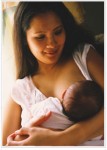 When female childhood cancer survivors grow up, are they more likely to experience an earlier onset of menopause? If so, what are the risk factors associated with early menopause? These were the questions asked by researchers at the French public hospital organization (AP-HP), the Institute Gustave Roussy, and the Universite Paris-Sud. Their study, published in the November 12th edition of Human Reproduction (http://humrep.oxfordjournals.org/content/early/2012/11/14/humrep.des391....) and summarized on the Science Daily website, provides valuable answers.
When female childhood cancer survivors grow up, are they more likely to experience an earlier onset of menopause? If so, what are the risk factors associated with early menopause? These were the questions asked by researchers at the French public hospital organization (AP-HP), the Institute Gustave Roussy, and the Universite Paris-Sud. Their study, published in the November 12th edition of Human Reproduction (http://humrep.oxfordjournals.org/content/early/2012/11/14/humrep.des391....) and summarized on the Science Daily website, provides valuable answers.
Researchers looked at data from Euro2K, a French cohort of 3402 survivors of childhood cancer, who were under 18 at the time of diagnosis, between the years 1945 and 1986. 706 female survivors (32% had already reached the age of 40, and 7% were over 50 years old) participated in this study and filled out detailed questionnaires about their health (age of first period, current menstrual status, etc.). Researchers studied the age at which each of these women started menopause and also took into account any possibly associated risk factors. All the data were self-reported, and researchers did not confirm the menopausal status of study participants with medical reports or hormonal tests.
Data analysis revealed that 97 women (13.7%) went through menopause at a median age 44 years. This is 7 years earlier than the median age of menopause in the general European population, which is 52 years. Menopause was surgically induced for a third of these women (36%).
Researchers concluded that the women most at risk for early menopause were survivors treated after the onset of puberty using alkylating agents (http://www.cancer.gov/dictionary?cdrid=45589 ) (with or without even a small dose of radiation to the ovaries). They found that the primary risk factors linked to cases of early menopause include the dosage of alkylating agents received during bone marrow transplant, the radiation dosage received at the ovaries, and the older the patient is when receiving childhood cancer treatment.
While these results are in agreement with the results of earlier American studies, they differ with regard to the fact that the French research team did not find that women who had suffered from childhood cancer had a significantly increased chance of premature menopause (i.e. menopause that occurs before the age of 40). Researchers suggest that a possible reason for this difference in findings is that patients from the French cohort were diagnosed with cancer at a lower median age than the participants in American studies (4 years old as opposed to 7 years old in a similar American study). This could partially explain the lower incidence of premature menopause in the study population.
This study is significant because it provides us with additional information about the risk factors that affect the fertility window of female survivors of childhood cancer. After assessing their risk of premature menopause, patients can make informed decisions regarding the timing of their family planning. For example, women at high risk might consider trying to get pregnant at a younger age than women at low risk.
To learn more about fertility preservation before, during, and after cancer treatment, including which chemotherapy regimes are most likely to affect fertility, please visit SaveMyFertility.org (www.savemyfertility.org)
Author: Cathryn Smeyers

 Breast-feeding may help reduce some long-term negative side effects of cancer treatment in women who survived childhood cancer, according to a new study.
Breast-feeding may help reduce some long-term negative side effects of cancer treatment in women who survived childhood cancer, according to a new study.